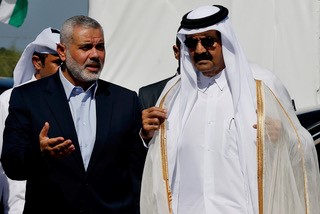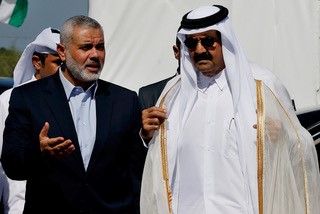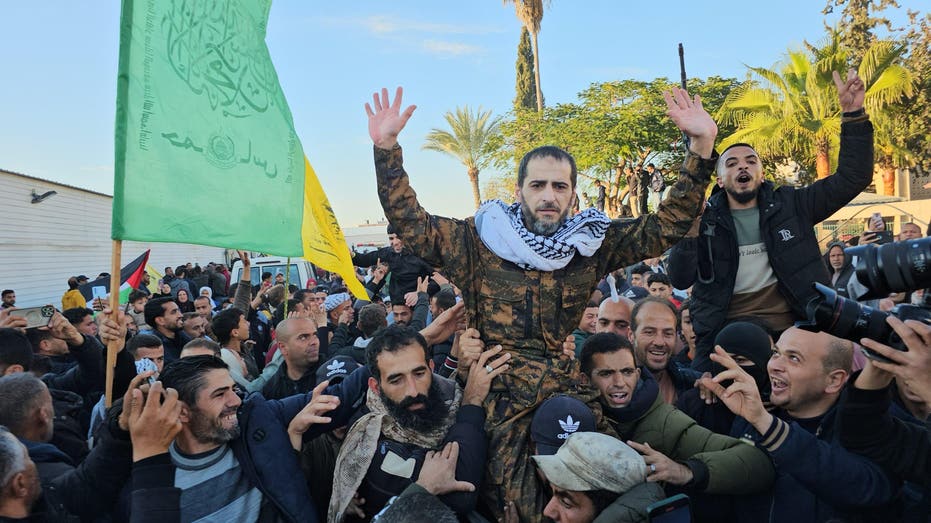
Palestinian Authority Allegedly Ends “Pay for Slay” Program, but Skepticism Remains
JERUSALEM—The Palestinian Authority (PA) has announced an end to its controversial “pay for slay” program, which provides financial support to Palestinian terrorists and their families. However, conflicting reports suggest the move may be an attempt to deceive the Trump administration rather than a genuine policy change.
PA’s Decree: A New Chapter or Déjà Vu?
On Monday, the Palestinian News and Information Agency (WAFA) reported that PA President Mahmoud Abbas issued a decree revoking laws and regulations governing financial payments to families of prisoners, martyrs, and the wounded. The responsibilities related to social welfare programs were allegedly transferred to the Palestinian Economic Empowerment Foundation. This change has been confirmed by independent sources, including *The Times of Israel*.
Despite the official announcement, skepticism remains high among analysts and officials, who argue that this may simply be a rebranding of the existing system to present a façade of change. Israel’s Foreign Ministry spokesman, Oren Marmorstein, took to social media platform X to voice his doubts, stating, “This is a new deception scheme by the Palestinian Authority, which intends to continue paying terrorists and their families through alternative payment channels.”
The “Pay for Slay” Policy and its Global Impact
The PA’s payment system gained global notoriety following the heinous murder of Taylor Force, a U.S. Army veteran, at the hands of a Palestinian terrorist in 2016. In response to this act of violence, the U.S. Congress enacted the Taylor Force Act in 2018, which prohibited American aid to the PA as long as the payments to terrorists continued. This legislation underscored the growing international concern over the PA’s funding of terrorism.
Experts Weigh In: Is It Really Over?
Even with the PA’s recent announcements, experts express serious reservations. Asher Fredman, the executive director of the Misgav Institute for National Security and a former Israeli government official, told *Fox News Digital* that Abbas’s decree is likely a tactical move aimed at misleading the Trump administration. “It appears that terrorists and their families will still receive payments, just through a ‘foundation’ controlled by Abbas rather than a PA ministry,” Fredman explained.
Moreover, he pointed out that key figures in the newly designated Palestinian Economic Empowerment Foundation are closely linked to the PA’s Ministry of Social Development. This raises questions about the legitimacy of the restructuring, further deepening the skepticism surrounding the PA’s true intentions.
Responses from Jewish Organizations
The announcement has drawn criticism from various organizations focused on human rights and anti-terrorism efforts. Rabbi Abraham Cooper of the Simon Wiesenthal Center expressed his discontent, stating, “We will rejoice when the PA stops financially rewarding Palestinian terrorists for murdering and injuring Israelis. Abbas’ statement makes no such commitment. Mr. Abbas, you either support and abet terrorism or oppose and help end it.”
Diplomatic Implications and Tensions
Reports from *The Times of Israel* suggest that PA officials had made efforts to notify the Trump administration about this decree, indicating a desire to mend the strained diplomatic ties between the two entities. Relations had soured notably after the U.S. formally recognized Jerusalem as Israel’s capital in 2017, leading to a boycott from Abbas’s administration against the Trump administration. The recent announcement was characterized as a “major victory for Trump,” illustrating a U.S. concession that previous administrations had struggled to achieve.
Continued Payments and Historical Precedent
Additional concerns have surfaced regarding prospective payments. Reports indicate that Palestinian terrorists released in late 2023, as part of a prisoner exchange deal, would still receive monthly payments ranging from 5 to 8—with higher amounts designated for residents of Jerusalem. Such actions demonstrate an ongoing commitment to financial support for those engaged in acts of violence, further questioning the PA’s commitment to ending its “pay for slay” practices.
The “Trump Effect” and Global Reactions
Jason Brodsky, the policy director at United Against Nuclear Iran (UANI), remarked that the PA’s recent actions may reflect a broader narrative concerning foreign leaders reacting to Trump’s diplomatic pressure. “This demonstrates the ‘Trump effect,'” Brodsky stated. He emphasized that foreign leaders are increasingly wary of crossing the U.S. president due to his unconventional approach to diplomacy, which frequently leads to outcomes that favor American interests.
Conclusion: An Era of Skepticism
As the Palestinian Authority claims to end its controversial “pay for slay” program, experts remain doubtful of the sincerity behind this announcement. With historical precedents of attempts to mask similar policies under new names and structures, the true nature of the PA’s commitment to ending financial support for terrorism remains to be seen. As the international community closely monitors these developments, the stakes for both the Israeli-Palestinian conflict and U.S. foreign relations are undeniably high.
Multiple inquiries directed to the Palestinian Authority by *Fox News Digital* have gone unanswered, leaving much uncertainty surrounding the real implications of their latest decree.


















